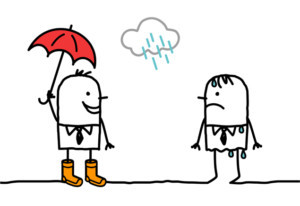In this article, I discuss my views on whether therapists should give advice to their clients.
Estimated reading time: 3 minutes.
I was recently having conversations with two psychologist colleagues on the topic of whether psychologists should give advice to their clients. One colleague was adamant that advice should be given as infrequently as possible. The second psychologist was more open to the practice. This psychologist said whether they would give advice depends on various factors. In the following sections, I will explore the issue of whether therapists should give advice to their clients.
What does it mean to give advice in therapy?
In this context, giving advice in therapy entails the therapist making suggestions or giving ideas to clients to help them address their issues. Examples include the therapist offering skills to the client to help them make progress on an issue like depression or anxiety, providing their thoughts on a decision with which the client is grappling, and giving a couple tools to communicate constructively about issues in their relationship.
The case against giving advice to clients
The case against giving advice to clients is the that people are more likely to act on ideas which they come up with themselves than ideas which are suggested by others for their benefit. In turn, this view states that clients are more likely to balk at or reject ideas provided by others than those which they think of themselves.
The implications of this viewpoint are that therapists should focus more on helping clients to think of their own ideas to address their issues rather than suggesting these ideas to them. In theory, therapists can guide clients to think of their own ideas through skillful questioning.
The kinds of questions therapists use for this purpose include: (1) Informational questions—these help the client become aware of information relevant to their issues; and (2) Analytical questions—these invite the client to analyze and make conclusions based on the information of which they have become aware by answering informational questions. With the right kind of client and the right kinds of questions, this process can lead the client to identify their own ideas to address their issues without the therapist having to suggest ideas to the client.

The case for giving advice to clients
Three points favouring giving advice to clients are:
(1) Even though clients may be more likely to act on and less likely to reject ideas which they think of themselves, there may be instances in which they find it difficult to think of their own ideas to address their issues;
(2) Because of their education and experience, a therapist may have many ideas they can offer clients which could helpful to the client in addressing their issues;
(3) Even though clients may be more likely to act on and less likely to reject ideas which they think of themselves, there may be strategies a therapist can use which make it more likely that the client will act on and less likely to reject ideas which the therapist offers them.
My views on whether therapists should give advice to clients
Because clients may be more likely to accept and act on their own ideas, my default approach in therapy is to use informational and analytical questioning to guide clients to generate their own ideas. Having said that, if I identify circumstances under which I believe that offering my ideas could be helpful, I don’t hesitate to do so. However, I follow certain guidelines when offering my ideas to make if more likely that the client will accept and act on them.
In my next article, I will discuss the circumstances under which I consider offering my ideas to clients along with guidelines I follow to make doing so most effective in helping the clients to address their issues.
May you make the right decision regarding whether to give advice,
-Dr. Pat






Leave A Comment